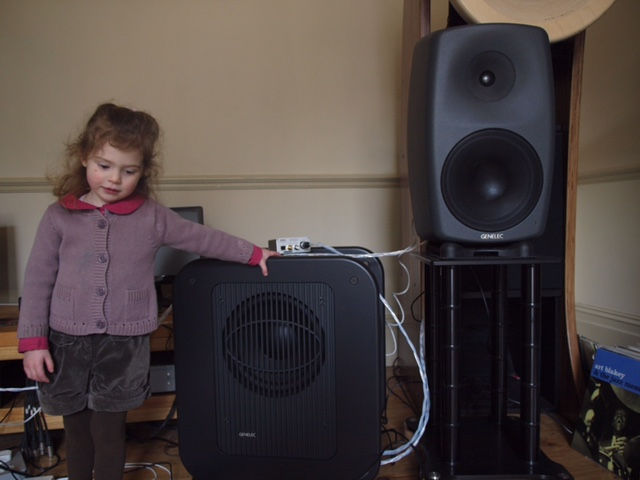Which speaker is right for me?
- Keith Cooper

- Nov 21, 2023
- 3 min read
Updated: Nov 27, 2023
When it comes to choosing a loudspeaker there are literally more designs than you can shake a stick at.
A few manufacturers are 'measurement led' which means that their speakers are designed to reproduce the original signal as accurately as possible, and not to introduce their own sound to the recording.
For example the majority of monitors ( just another name for a loudspeaker) designed for the 'Pro audio' world are almost certainly going to be measurement led, really well designed and great sounding speakers are available from manufacturers such as Genelec, Neumann, Kii, Dutch&Dutch, Sigberg Audio and GGNTKT.
All of these are contemporary active designs that have power amplification, volume attenuation, A/D, D/A built in, the more advanced might also have a cardioid response, built in parametric EQ and sophisticated tone controls, they might also be able to adjust their bass response allowing greater versatility in placement.
There is no reason why a studio 'monitor' should not be used in a domestic environment they are just transparent loudspeaker designs.
In terms of aesthetics, no doubt you will have your own opinion.
There are also a few manufacturers who make passive designs which are also measurement led, these would include Revel, KEF and Magico.
The positives of 'passives':-
Passive speakers, obviously you get to choose amplification and what to connect them up with, this is perfect if you enjoy swapping components in and out in the never ending search for the holy grail of SQ, retailers are also fond of this aspect too!
The disadvantages of passive designs :-
Firstly they have no adjustment whatsoever, 'most' are designed to sit some distance away from the front wall, you can't adjust their bass response, place them closer to the front wall and there might be too much bass, the only way to combat 'boomy' bass ( standing waves, reinforcing certain frequencies) is to shuffle the speaker away from the wall until you (hopefully) find the quarter wave length of the offending frequency.
Passives require really large enclosures and really large bass drivers to generate bass extension, which is going to add to the cost.
Passives obviously don't have built in DSP ( digital signal processing) which allows the designer to create perfect step response, phase coherency, flatten FR seamlessly integrate subwoofers.
A passive loudspeaker design might require a change to a more powerful amplifier ( we discussed impedance and phase) whereas in an active design one amplifier powers just one driver so the power amplifier can be tailored exactly to that specific driver's requirements.
In passive's favour there is a far larger choice because they have been the norm almost since the invention of the dynamic driver in the 1900's.
Ultimately the individual must decide exactly what they require from a loudspeaker, how loudly do you need it to play, how far are you going to be sitting away from it, do you want to be able to hear everything that is on the record in terms of bass extension.
Is having an elegant design piece of furniture more important than absolute fidelity.
Passives will require a number of ancillary boxes, referred to as the audiophile 'shrine' for a full-range sound you will almost certainly need to add and properly integrate subwoofers .
A contemporary active design ( of which I am personally fond) such as Dutch&Dutch's 8C is a complete system in itself, everything is built in, power amps, pre amp, dac, adc, parametric EQ, simply open Roon or Spotify connect and press play!
Personally I just want to hear extremely high quality sound with the minimum of fuss. I also want a system that is simple and straightforward enough so that the whole family can use it, one that connects to the TV or home cinema, a system which draws so little power that you don't ever need to turn it off.
Simple, elegant, understated that takes up very little of your room but which will produce the finest sound quality you have ever heard.
Purité Audio only represents measurement led designs, I have only ever sought to simply hear everything that is on the record, I don't want the speaker to be a musical instrument I just want it to be the most accurate transducer possible.
Next time DACS!




Comments